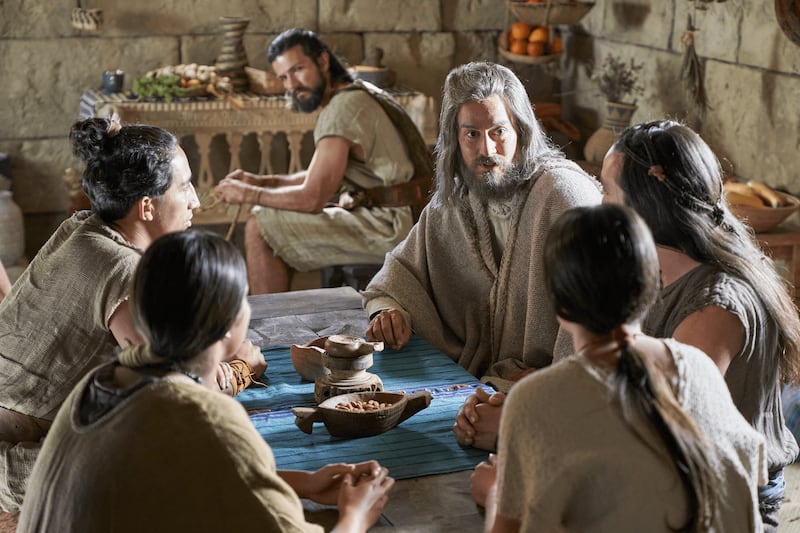This week’s “Come, Follow Me” study guide covers Mosiah 25-28, which includes Alma the Younger and the sons of Mosiah’s rebellion and their subsequent conversion.
Following are a few quotes from past and present Church leaders about these chapters.
Mosiah 25
“When Alma and his people were captured by the Lamanites, they prayed for deliverance. They were not immediately delivered, but while they patiently waited for deliverance, the Lord showed forth His goodness with certain immediate blessings. He immediately softened the hearts of the Lamanites so they wouldn’t slay them. He also strengthened Alma’s people and eased their burdens. When they finally were delivered, they traveled to Zarahemla, where they recounted their experience to an amazed audience. The people of Zarahemla marveled, and ‘when they thought of the immediate goodness of God, and his power in delivering Alma and his brethren out of … bondage, they did raise their voices and give thanks to God’ (Mosiah 25:10).
“The immediate goodness of God comes to all who call upon Him with real intent and full purpose of heart. This includes those who cry out in earnest desperation, when deliverance seems so distant and suffering seems prolonged, even intensified.”
— Elder Kyle S. McKay, April 2019 general conference, “The Immediate Goodness of God”
“Parents, what do our children learn from our examples of honesty and integrity? Do we realize that they are always watching us? Do we understand the impact of our examples on the eternal destiny of our children? …
“We remember the wicked priests of King Noah in the Book of Mormon. His priests, when faced with danger, abandoned their wives and children to save their own lives. Years later, when their children had escaped and had been led to the righteous followers of Alma, we read, ‘the children of Amulon … were displeased with the conduct of their fathers, and they would no longer be called by the names of their fathers, therefore they took upon themselves the name of Nephi, that they might be called the children of Nephi’ (Mosiah 25:12).
“We must never forget the power of parental example.”
— Elder Larry S. Kacher, then the second counselor in the Africa West Area Presidency, in the April 2018 Liahona article, “Area Presidency Message: Honesty and Integrity”
Mosiah 26
“An equally important part of fulfilling our parental duty to God is teaching our children the gospel and preparing them to participate fully in the Savior’s restored Church. Remember the lesson of King Benjamin’s people. As a result of his teachings, many of the adults had a mighty change of heart (see Mosiah 5:2). But then it says that ‘there were many of the rising generation that could not understand the words of King Benjamin, being little children at the time he spake unto his people; and they did not believe. … And their hearts were hardened’ (Mosiah 26:1, 3).
“It is our imperative duty to help youth understand and believe the gospel in a deeply personal way. We can teach them to walk in the light, but that light cannot be borrowed. They must earn it for themselves. They must obtain their own light of testimony directly from the source of spiritual light — God Himself — through prayer and study and pondering. They must understand who they are and who Heavenly Father wants them to become.”
— Elder Robert D. Hales, April 2010 general conference, “Our Duty to God: The Mission of Parents and Leaders to the Rising Generation”
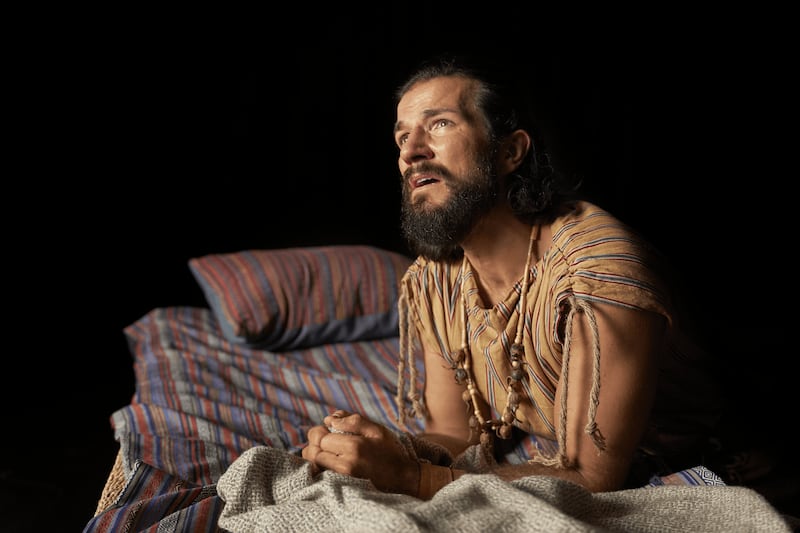
“As recorded in Mosiah, families received the word of the Lord through their prophet with enthusiasm and commitment. The people were so moved by King Benjamin’s teachings that they entered into a new covenant to follow the Lord Jesus Christ.
“However, there is a sad epilogue to this story. We learn later in Mosiah concerning those who were but little children in the tents at the time of King Benjamin’s sermon:
“’Now it came to pass that there were many of the rising generation that could not understand the words of king Benjamin, being little children at the time he spake unto his people; and they did not believe the tradition of their fathers’ (Mosiah 26:1).
“What happened to that rising generation, brethren? Why didn’t the young children accept the righteous traditions of their fathers? More importantly, here we are centuries later, in a day of many temples and constant prophetic direction, and what of our rising generation? …
“[We] all need to respond to the call for ‘all hands on deck’ as it pertains to our youth and young single adults. We must all look for opportunities to bless the youth whether or not we are currently closely associated with them. We must continue to teach and fortify fathers and mothers in their divinely declared roles with their children in the home.”
— Elder Ronald A. Rasband, April 2006 general conference, “Our Rising Generation”
“In one of the times of spiritual and temporal adversity recorded in the Book of Mormon, when the people of God were ‘suffering all manner of afflictions,’ the Lord commanded them to ‘give thanks in all things’ (Mosiah 26:38-39). …
“When we give thanks in all things, we see hardships and adversities in the context of the purpose of life. We are sent here to be tested. There must be opposition in all things. We are meant to learn and grow through that opposition, through meeting our challenges and through teaching others to do the same.”
— Then-Elder Dallin H. Oaks, April 2003 general conference, “Give Thanks in All Things”
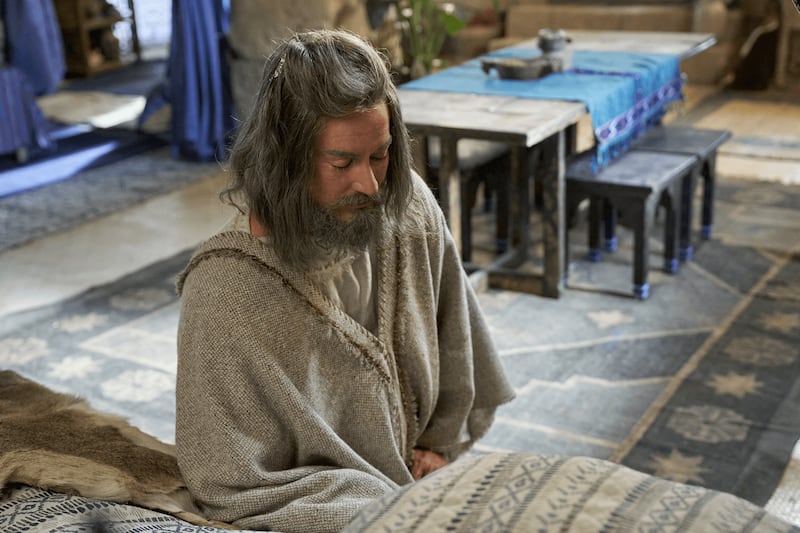
Mosiah 27
“One remarkable transformation was that of Alma the Younger. As Alma was ‘going about rebelling against God’ (Mosiah 27:11), an angel appeared. With ‘a voice of thunder’ (Mosiah 27:11), the angel chastised Alma for persecuting the Church and ‘stealing away the hearts of the people’ (Mosiah 27:9, 13). The angel added this admonition: ‘Go, and remember the captivity of thy fathers … and remember how great things [God] has done for them’ (Mosiah 27:16). Of all possible exhortations, that was what the angel emphasized.
“Alma repented and remembered. He later shared the angel’s admonition with his son Helaman. Alma counseled, ‘I would that ye should do as I have done, in remembering the captivity of our fathers; for they were in bondage, and none could deliver them except it was the God of Abraham, … Isaac, and … Jacob; and he surely did deliver them in their afflictions’ (Alma 36:2). ... Alma understood that by remembering deliverance from bondage and support during ‘trials and troubles of every kind’ (Alma 36:27), we come to know God and the surety of His promises.”
— Elder Dale G. Renlund, April 2020 general conference, “Consider the Goodness and Greatness of God”
“As we make and keep covenants with God, the Savior can help us to ‘be born again; yea, born of God, changed from [a] carnal and fallen state, to a state of righteousness, being redeemed of God, becoming his sons and daughters’ (Mosiah 27:25).
“Of all the zealous social, religious and political endeavors of our day, let ‘disciple of Jesus Christ’ be our most pronounced and affirming affiliation.”
— Elder Jeremy R. Jaggi, October 2020 general conference, “Let Patience Have Her Perfect Work, and Count It All Joy!”
“The great prophet Alma, speaking of his own life and his conversion, said: ‘I have repented of my sins, and have been redeemed of the Lord; behold I am born of the Spirit.
“’And the Lord said unto me: Marvel not that all mankind, yea, men and women, all nations, kindreds, tongues and people, must be born again; yea, born of God, changed from their carnal and fallen state, to a state of righteousness, being redeemed of God, becoming his sons and daughters;
“’And thus they become new creatures; and unless they do this, they can in nowise inherit the kingdom of God’ (Mosiah 27:24–26).
“Being converted to the gospel of Jesus Christ means to walk in a newness of life. It means learning to yield to the Spirit and responding to the things that the Lord expects us to respond to. It means caring for and serving others with deep, considerate feelings rather than pursuing the natural desires of our own lives. In our day and time there has been a great tendency to shrug off the things of the Spirit as we become more and more involved in worldly things. We seem to be living in a world where people give little thought to others, as they are busily caring for their own needs. As followers of Christ, we must live outside ourselves and lose ourselves in service to others.”
— Elder Robert E. Sackley, October 1988 general conference, “A More Excellent Way”
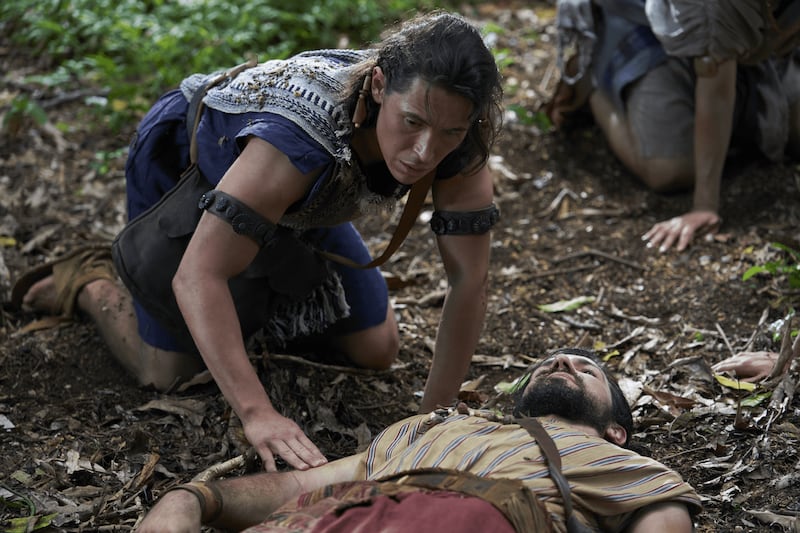
“The Book of Mormon tells a remarkable story about a father who loved his son so much he gave him his own name. The father was chief high priest in the land, and spent much of his days administering to the spiritual needs of the people. How disappointed he must have been when his son chose to turn from his teachings.
“As any righteous father, he pleaded with the Lord for a change to occur in the life of his son. In answer to his prayers, an angel stood before this young man and said, ‘Behold, the Lord hath heard the prayers of his people, and also the prayers of his servant, Alma, who is thy father; for he has prayed with much faith concerning thee that thou mightest be brought to a knowledge of the truth’ (Mosiah 27:14).
“The scriptures record how the prayers of a righteous father had been answered. History attests to the power of righteous leadership in the home.”
— Elder L. Tom Perry, October 1977 general conference, “Father — Your Role, Your Responsibility”
“Alma the Younger … was ‘a man of many words, and did speak much flattery to the people,’ leading away ‘many… to do after the manner of his iniquities’ (Mosiah 27:8).
“We are further told that he was ‘a great hinderment to the prosperity of the church of God’ because of the dissension that he caused (Mosiah 27:9).
“I suppose the tendency then, as it often seems to be today, was to ‘write him off.’ But you know the miraculous story of how an angel of the Lord appeared to that young man and how he became one of the greatest missionaries in the church of Christ. What was it that caused that great change to occur? The angel testified to Alma the following: ‘Behold, the Lord hath heard the prayers of his people, and also the prayers of his servant, Alma, who is thy father’ (Mosiah 27:14).
“Think of it! The power of parental prayer! As we consider the challenge of rearing children in a world fraught with temptations, false ideologies and materialistic enticements, do you not feel the need for guidance and inspiration beyond your human capacity? There is no greater help or strength that a father or mother can obtain than through securing that help from the Lord.”
— President Paul H. Dunn, then of the first council of the Seventy, April 1974 general conference, “Parents, Teach Your Children”
Mosiah 28
“The most important conversion for any of us is our own. If we are to bring the light of the gospel into others’ lives, it must shine brightly in our own. Once converted, the sons of Mosiah labored without ceasing to share the gospel with others, ‘for they could not bear that any human soul should perish’ (Mosiah 28:3). Only when we are converted to the Lord Jesus Christ are we in a position to strengthen others. And only then do we begin to understand that our lives truly do have meaning, purpose, and direction, and that as sisters united in our devotion to Jesus Christ our calling is to be a light to the world.”
— Sister Mary Ellen Smoot, then the Relief Society general president, October 2000 general conference, “We Are Instruments in the Hands of God”
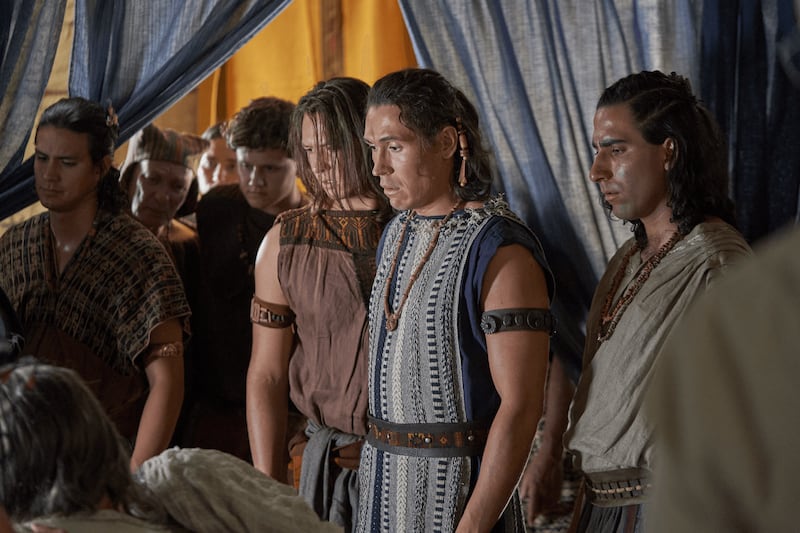
“The four missionary sons of Mosiah did not choose the easy course. Their choice was neither convenient, nor popular: They gave up the kingship. ‘Mosiah had no one to confer the kingdom upon’ (Mosiah 28:10) — they were all on missions. ...
“Their choice to serve a mission was not one of convenience. Ammon spoke of the challenges they encountered: ‘We have been cast out, and mocked, and spit upon, and smote upon our cheeks; … and taken and bound with strong cords, and cast into prison.’ However, Ammon continues, ‘Through the power and wisdom of God we have been delivered again’ (Alma 26:29).
“They were not easy missions, but thousands were converted.”
— Elder Harold G. Hillam, October 1995 general conference, “Sacrifice in the Service”
“The [missionary] spirit of which I speak is best understood by reading the accounts of great missionaries such as the sons of Mosiah. It was their desire that they might impart the word of God to their brethren, the Lamanites. Note the depth of their feelings:
“’Now they were desirous that salvation should be declared to every creature, for they could not bear that any human soul should perish; yea, even the very thoughts that any soul should endure endless torment did cause them to quake and tremble.
“’And thus did the Spirit of the Lord work upon them’ (Mosiah 28:3–4).
“This and other scriptures describe a marvelous phenomenon which occurs among men when the light of the gospel illuminates their lives. Almost instinctively, it seems, that light of truth sparks a desire to share. When our minds are expanded by new knowledge, we want others to know; when our spirits are elevated by heavenly influence, we want others to feel; and when our lives are filled with goodness, we want others, particularly those whom we love, to enjoy similar experiences.”
— Elder Carlos E. Asay, October 1976 general conference, “The Spirit of Missionary Work”


